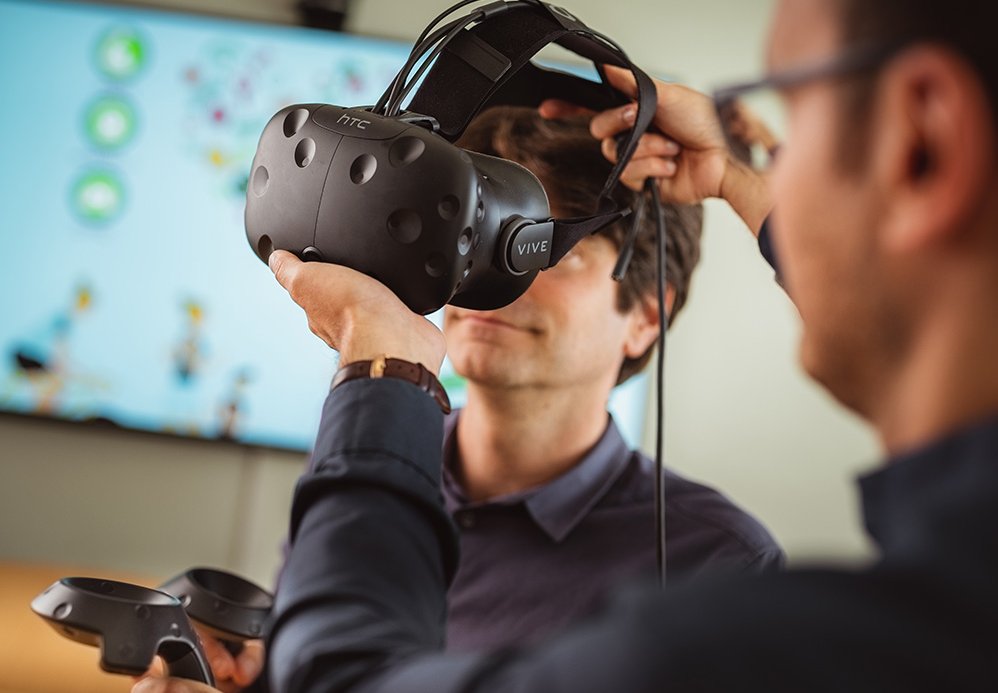Archive of completed projects IFeL
You will find below a selection of completed projects of the Institute for Research in Open, Distance and eLearning (IFeL).
Collaborative Learning in Virtual Environments
The aim of project CLIVE (Collaborative Learning in Virtual Environments) is to design and evaluate a learning environment in virtual reality, which could be implemented in blended learning courses. The environment can enable social skills training in a multi-user virtual environment with high practical relevance.
Dietitians play a crucial role in the diagnosis and treatment of nutritional diseases. Their profession requires highly developed conversational skills.
Virtual reality (VR) offers the simulation of social situations, which would not be possible with classical teaching methods, or could only be achieved with considerable effort. Basic research suggests that VR can be successfully used for social skills training
and the training of health-care professionals. In a feasibility study, we design and evaluate a multi-user VR environment that enables dietetics students to practice professional conversations in a virtual hospital room.
Contact: Dr. Ivan Moser
Duration of the project: 2020 - 2021
Virtual Reality and Learning Activities
Project VIRLA (Virtual Reality and Learning Activities) investigates whether immersive Virtual Reality (VR) can be successfully used in distance education. We assess whether it is possible to perform challenging teamwork in a multi-user VR environment.
Head-mounted displays enables social interaction and co-working in immersive 3D-environments. Unlike video conferencing, VR allows for spatial interactivity. In addition, distracting stimuli can be controlled because the screen fills the entire field of vision of the user. Not surprisingly, major companies invest a great deal of money in the further development of the technology. We investigate how group collaboration
in VR compares to video conferencing and face-to-face interaction.
Contact: Dr. Ivan Moser
Duration of the project: 2016 – 2020
Online Prompting in Adaptive Learning
With OPaL (Online Prompting in adaptive Learning) we develop and test adaptive online courses with content whose solutions are unstructured text and are therefore more difficult to measure.
To do this, we use prompting tasks, a form of task in which learners compare their solution with a sample solution. This sensor makes it possible to estimate the accuracy of each task and make recommendations for the following tasks.
Contact: Dr. Egon Werlen
Duration of project: 2018 - 2020


